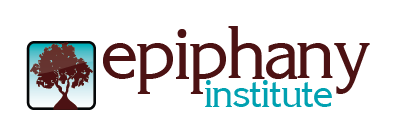How to Get More Public Speaking Opportunities

Have you been tapped to give a keynote, sit on a panel discussion or deliver a training presentation and realize you want to do more speaking?
If you were given the opportunity to share your knowledge or experiences on someone else’s platform as a public speaker, that means you’re seen as a person who has something valuable to offer. How do you set yourself up for more opportunities to speak in the future?
Whether you just want to speak occasionally or want to become a professional speaker, here are five tips to get you off to a good start.
Be Intentional About Your Personal Brand
When a company or organization needs a speaker, you want them to think of you if you’re the right fit. Be intentional about how you position your personal brand and act in alignment with that so they’ll know you’ll the person for the job.
For instance, a key element of my brand is helping people build businesses without burning out. I work with busy people who don’t have an abundance of time and energy. For that reason, my coaching programs tend to be longer, so they have more implementation time, and I don’t bombard my clients with lots of busy work. As I create content, I’m also taking steps to make it shorter and easier to consume.
I am not the right fit to speak at a conference of #teamnosleep entrepreneurs. But I am a perfect to speak at an event for people starting a business on the side or looking to scale while raising a family. Don’t get in your feelings if you’re not right for an opportunity. Focus on audiences where you can add the most value.
Solve a Problem
If a company or organization is hosting an event with a speaker, there’s a greater purpose behind their efforts. The better you understand the needs of each stakeholder and position yourself as the one to meet their needs, you increase your odds of being selected.
Keep in mind that there could be multiple stakeholders to satisfy. For example, if I’m teaching a workshop on personal branding for a large corporation, HR may be focused on decreasing employee attrition or increasing internal mobility for underrepresented groups. But what will get prospective attendees excited about my session? That’s where I focus my learning objectives around deliverables the employees care about based on problems they’re experiencing or goals they want to achieve.
That doesn’t mean you have to create a new speech or workshop for every audience. By taking the time to understand the needs of both the host and the attendees, you can customize existing content in a way that feels like it was created just for them.
If the event has sponsors, don’t forget about them, either. Is there something about your background or experiences that make you an attractive choice? If so, be sure to play that up in your proposal.
Pick Your Platform
In her best-selling book, The Widest Net, my friend Pamela Slim describes your platform as a shining Beacon. Your beacon is “the primary, but not only, place where you will share your point of view and centralize your body of work.” This is the place where you tell your ideal customers, peers and partners who you are, what you believe, your theory of change, point of view and your solutions to their problems. This doesn’t apply only to online platforms like podcasts or blogs, either. Your Beacon can be offline efforts like an ongoing meetup or group, book, a special event, or workshop tour.
You don’t have to wear yourself out creating new content at a pace that doesn’t serve you. If your focus is on getting new speaking engagements vs. long-term clients, having a few strong foundational pieces that give decision-makers a sense of who you are and how you deliver your expertise can be enough. However, one very important piece of content is having video of you speaking, even if it isn’t a fancy sizzle reel.
Build Your Network
Some of the best opportunities can come from people who already know you. But what if your network is restricted to the people you work with? Be intentional about expanding your network and engage in regular activities to support this goal. This could come through involvement in professional or service organizations, faith communities, social circles, even other parents you meet through the children in your life.
I periodically host virtual roundtables that allow me to actually get to know the people I’m connected to on LinkedIn. During these sessions, I’m not asking for business or referrals, it’s simply focused on nurturing relationships.
Workshop Your Material
When comedians are building a new act, they often workshop their material in small comedy clubs before they take it on the road. That’s a strategy that can work for speakers, too. That story or breakout exercise might have a few kinks that need to be worked out for it to have the impact you intend.
Before delivering new material to a high-stakes audience, look for opportunities to test it out on safer audiences first. That could be speaking for a community group or meetup, or even hosting a small pilot event of your own. Don’t make the logistics too complicated, though. Remember, the primary focus is to test and refine your material, not having a massive audience or client conversions.
Need Help Becoming a Speaker?
If you enjoy speaking and want more opportunities to make a positive impact with your message, don’t leave it to chance. Putting these practices in motion will go a long way to putting you on the radar and positioning you as a speaker of choice.
Need a guide to help you navigate the process? Check out Platform for Purpose to learn more about our Incubator and other training opportunities and resources.
Do you know your platform superpower? Take the Quiz




